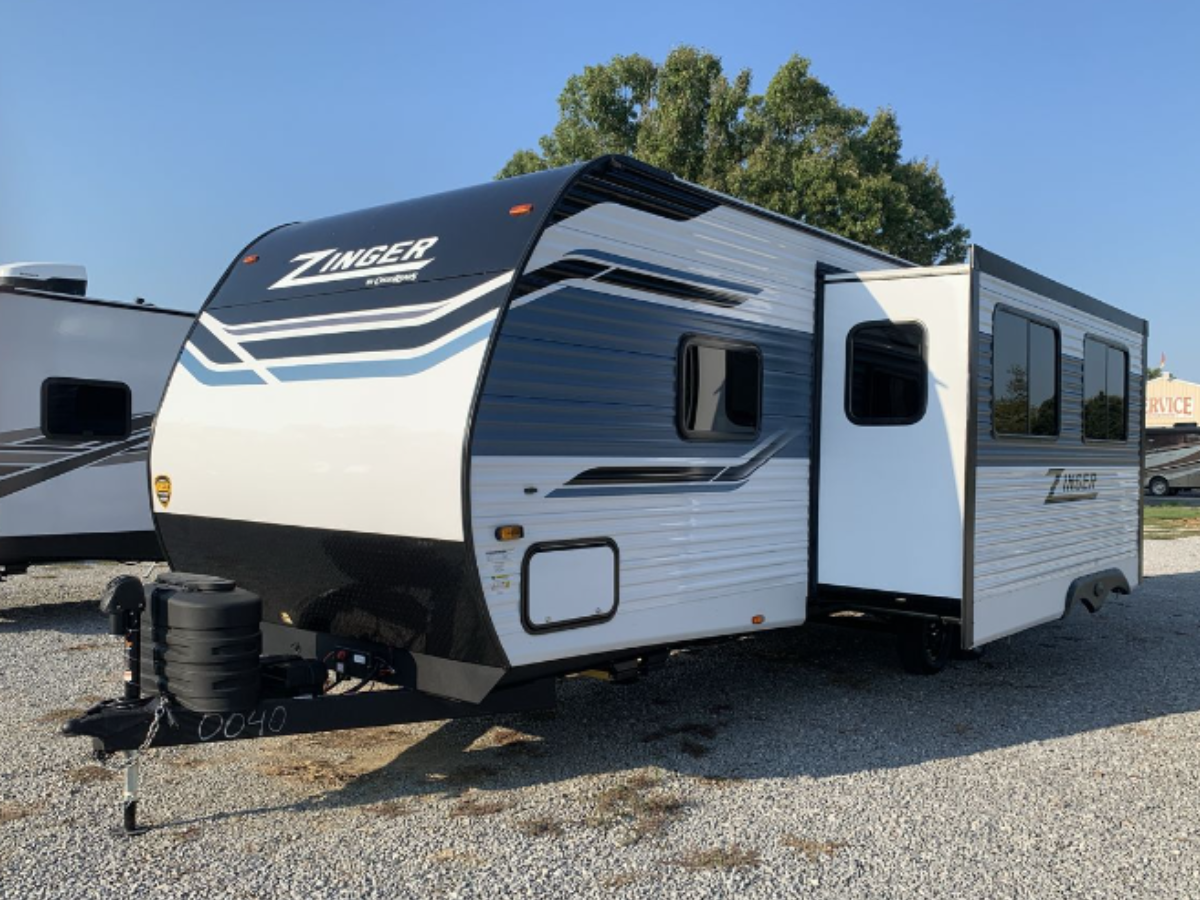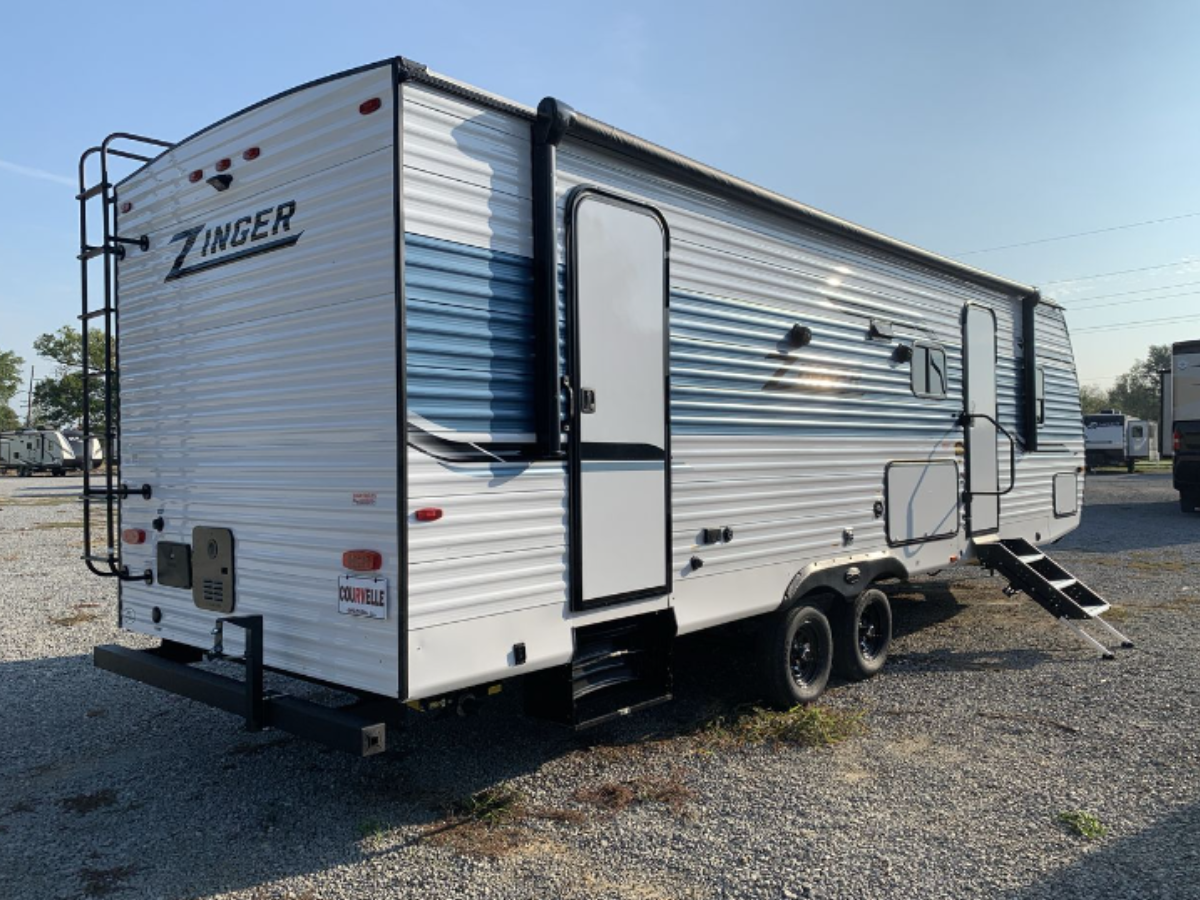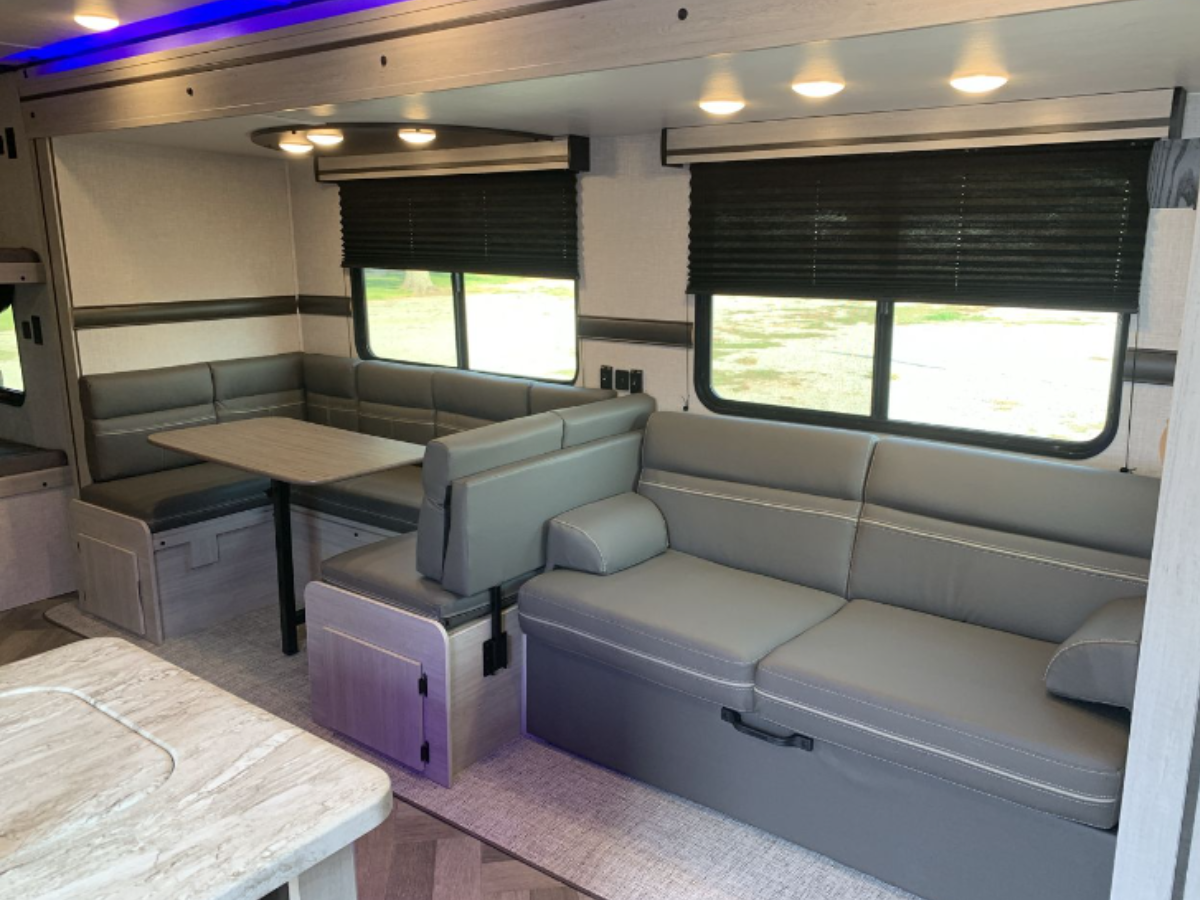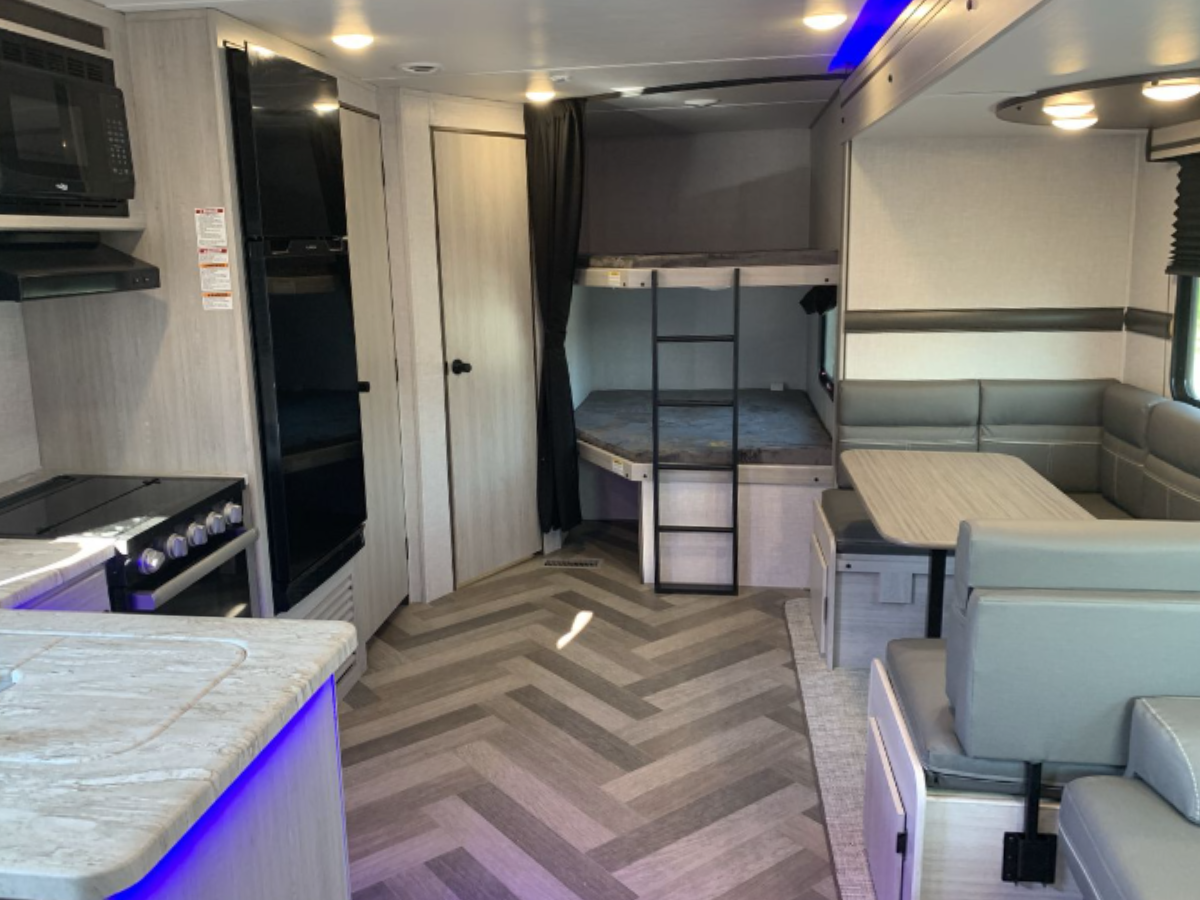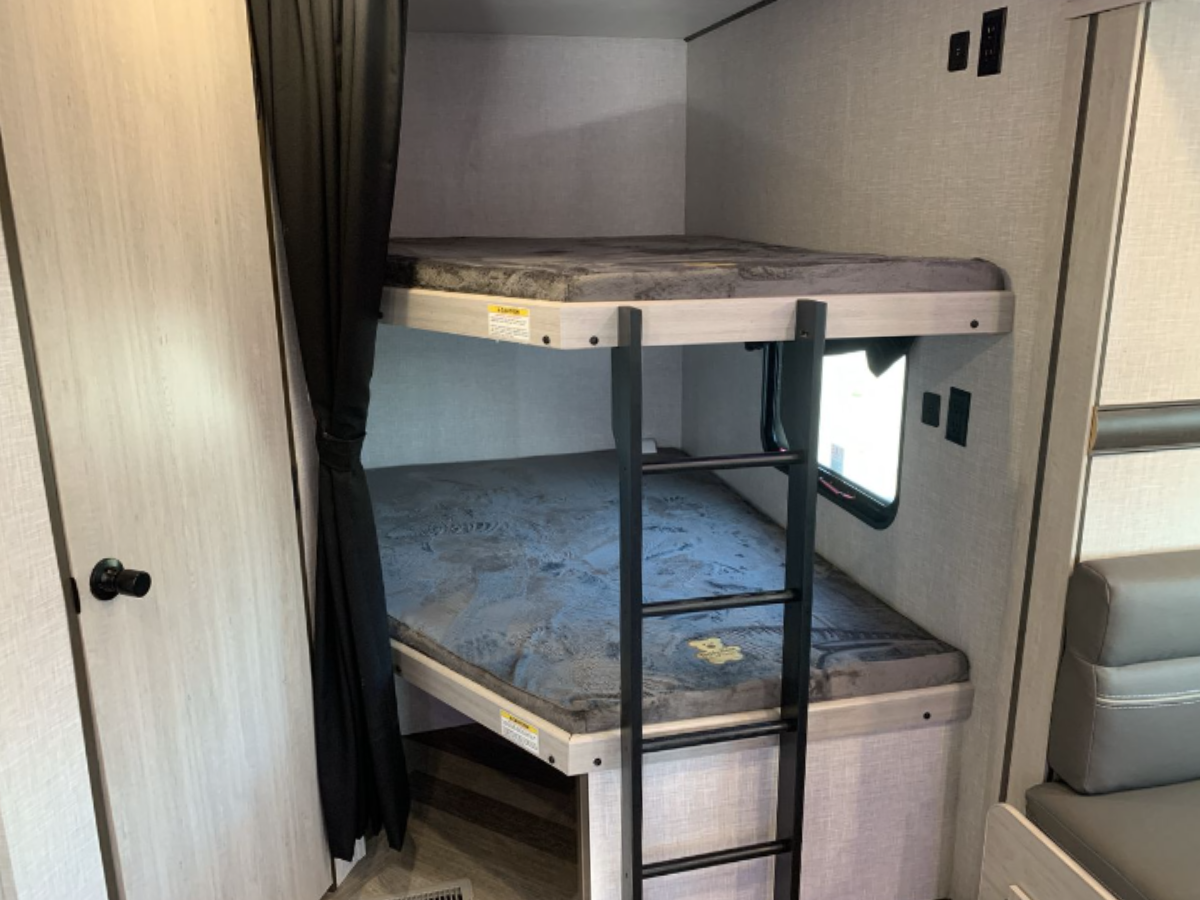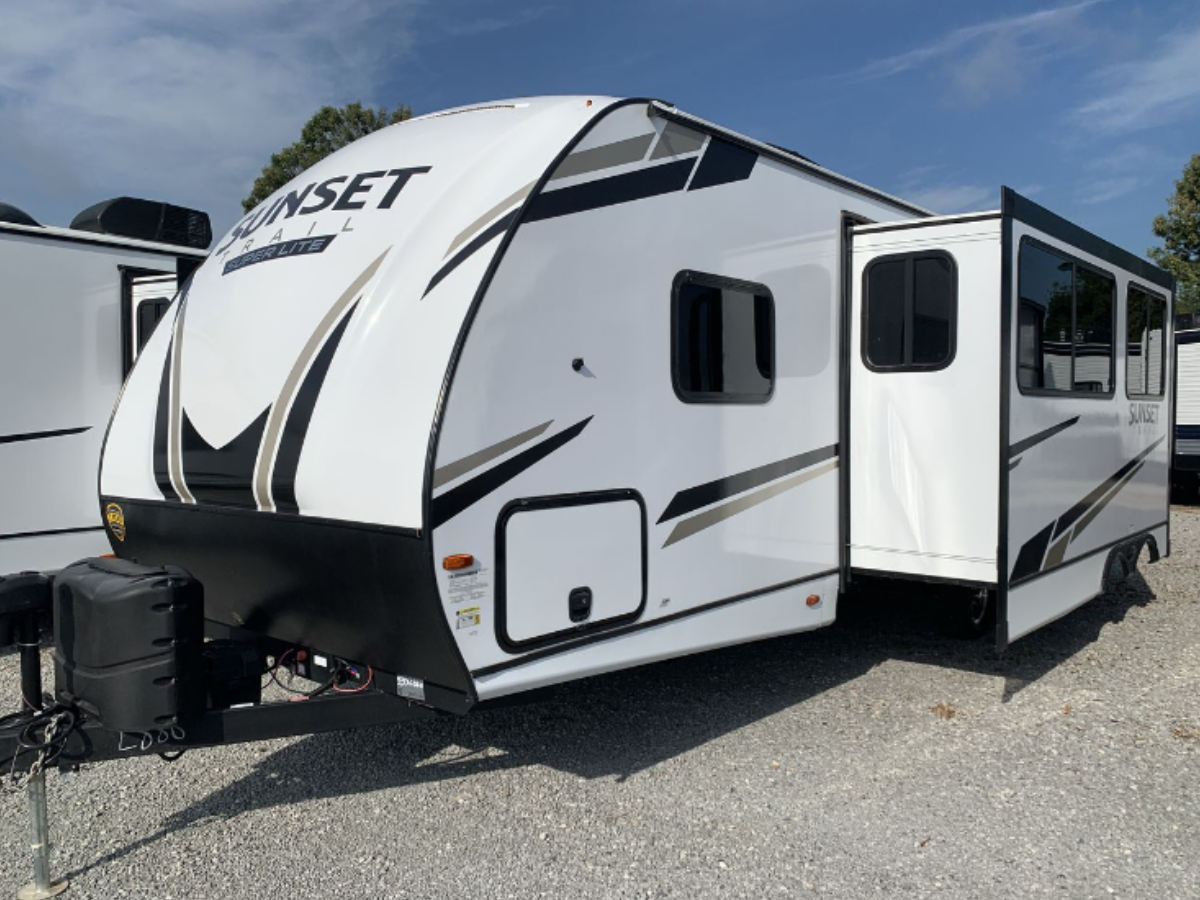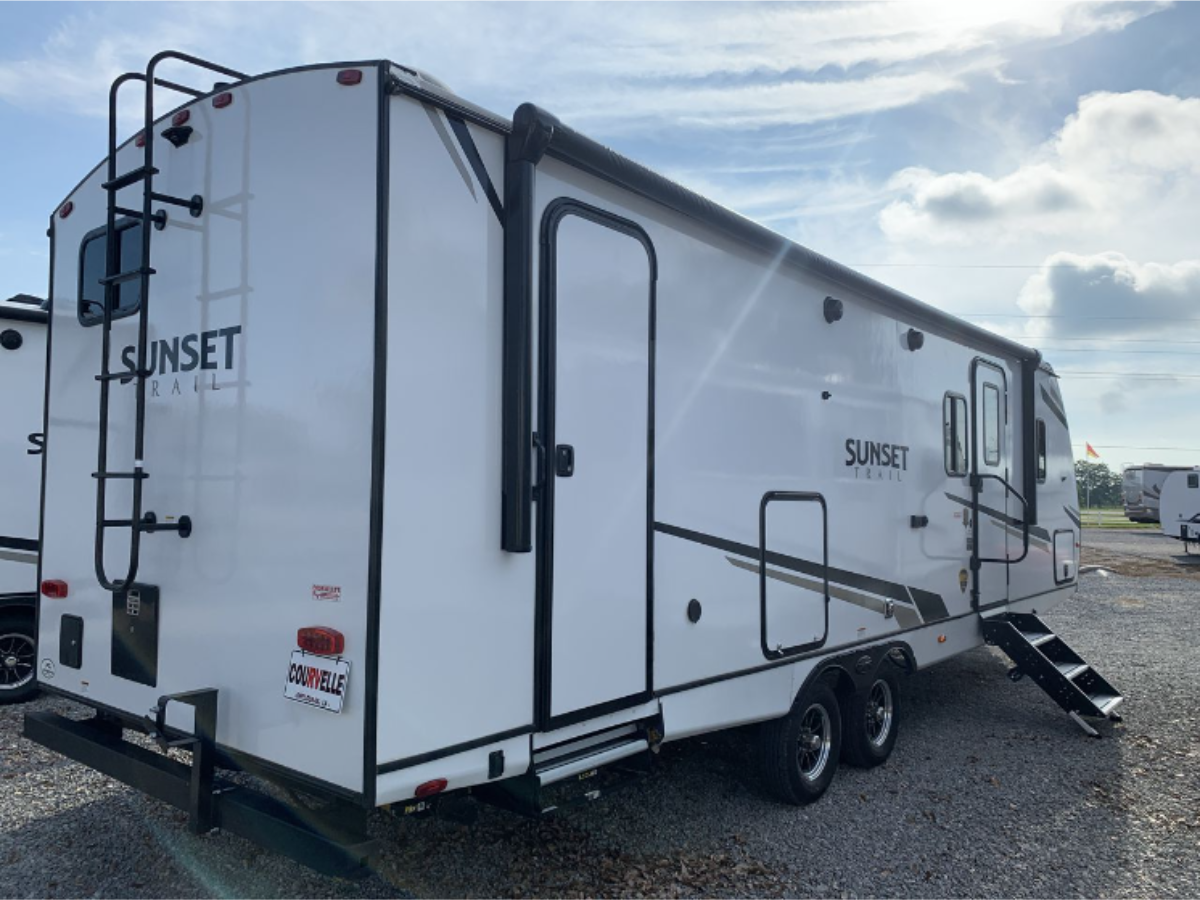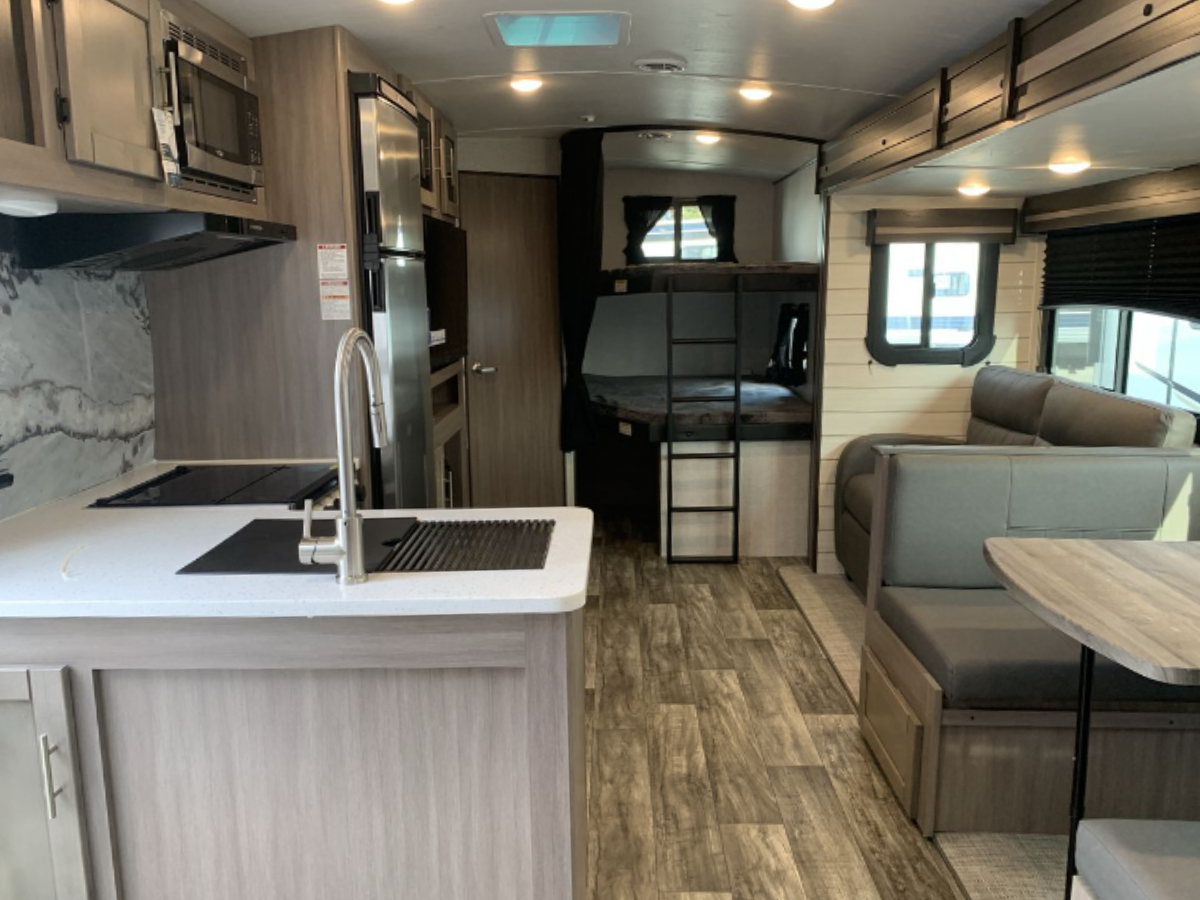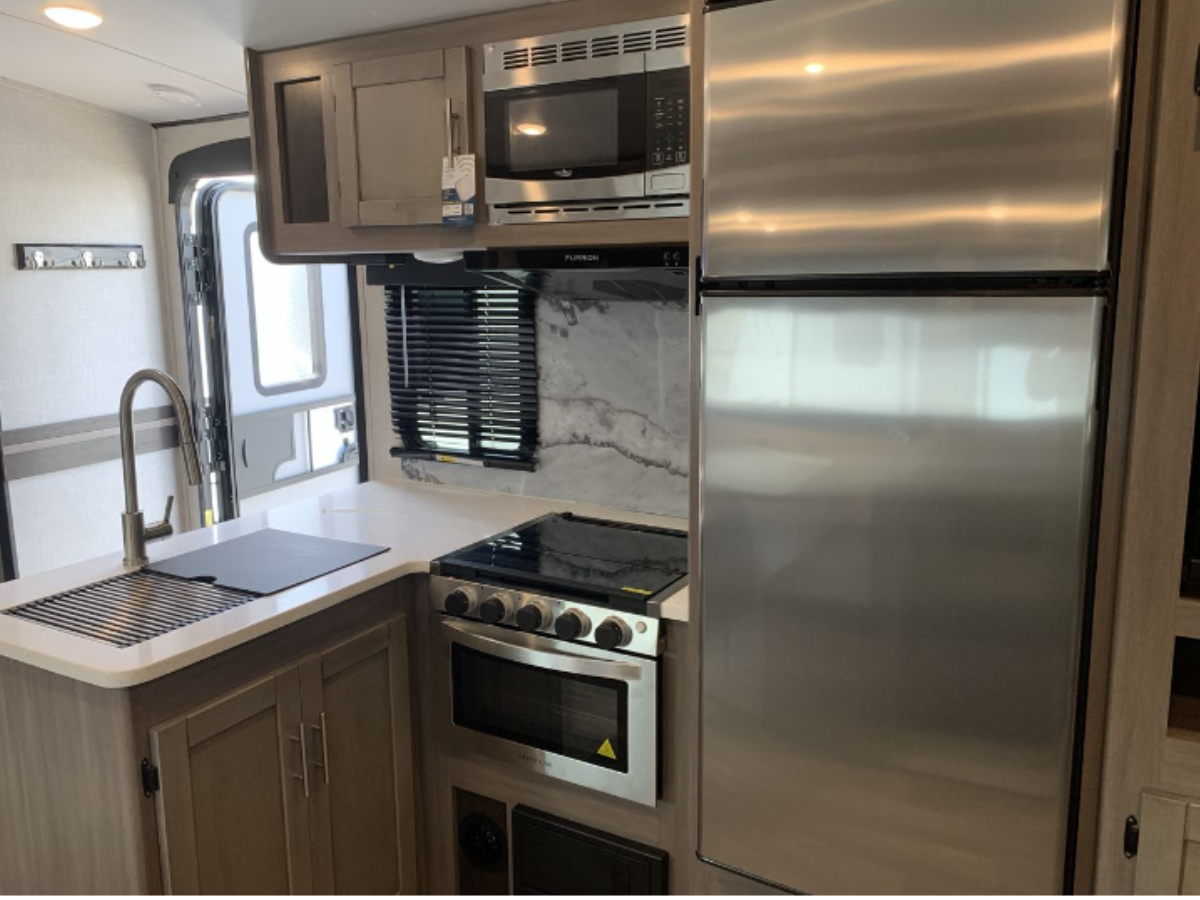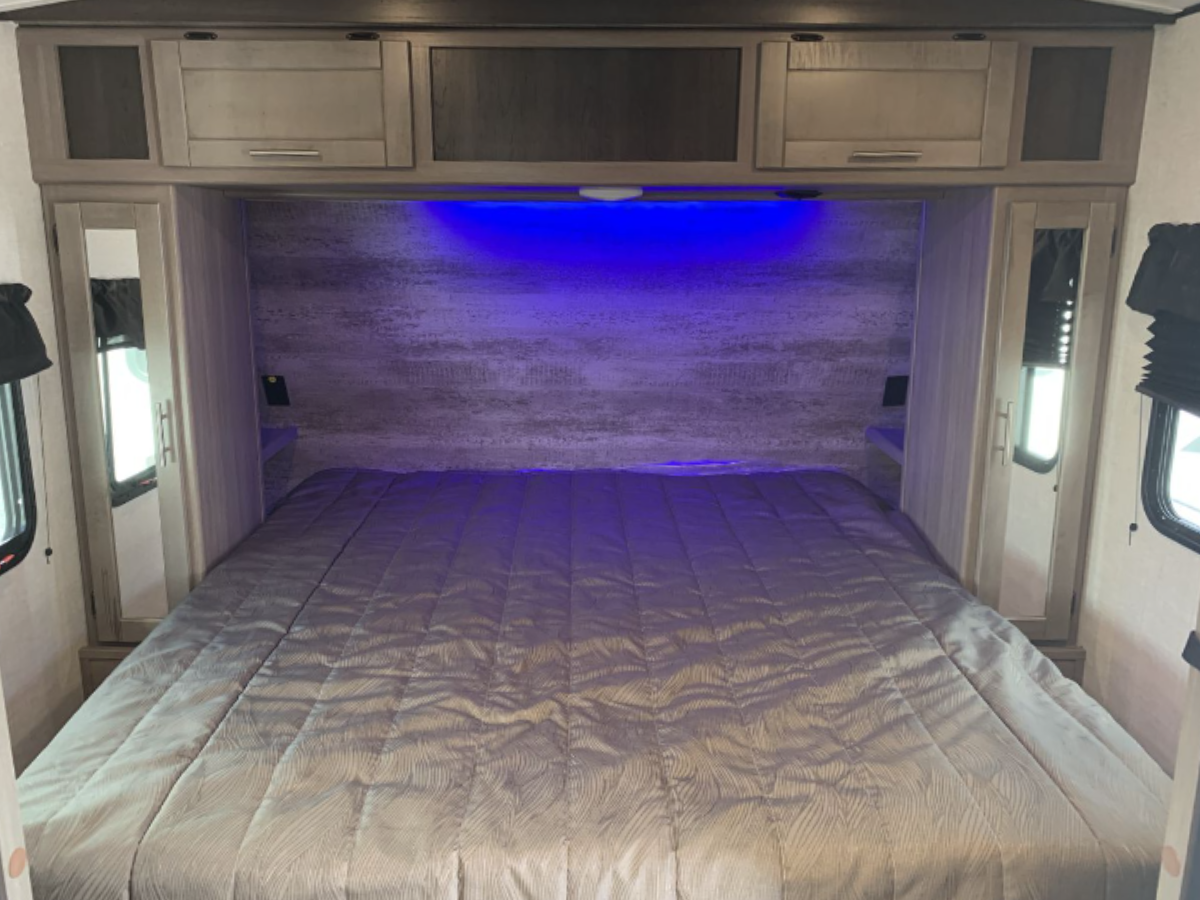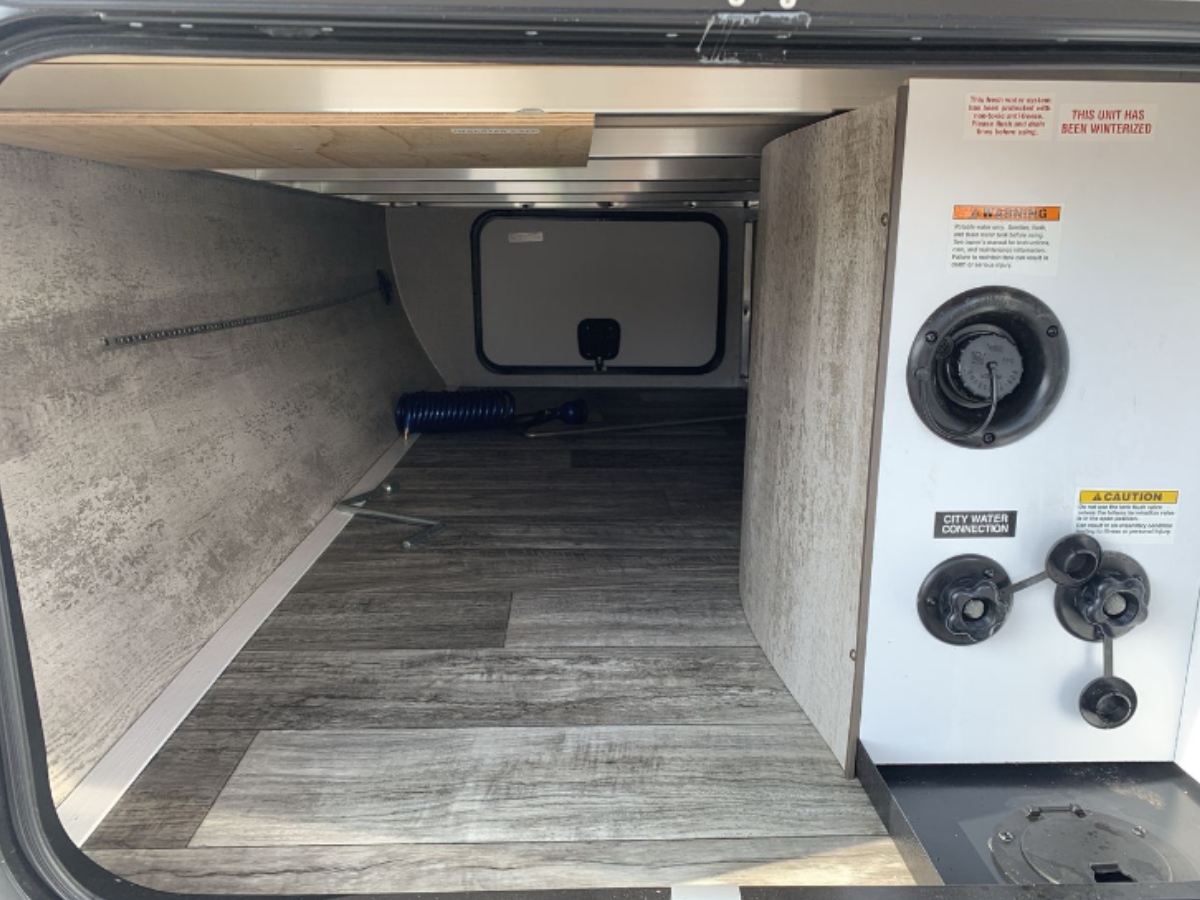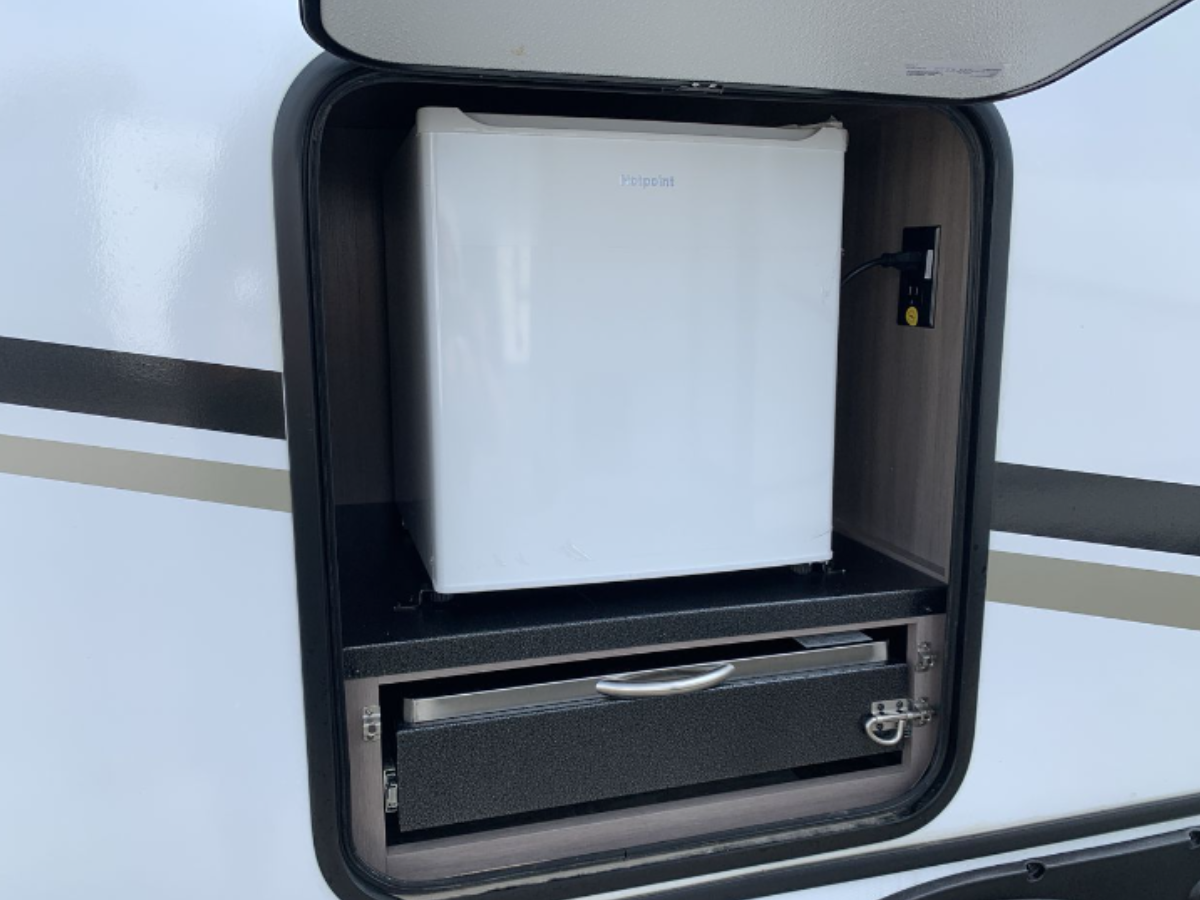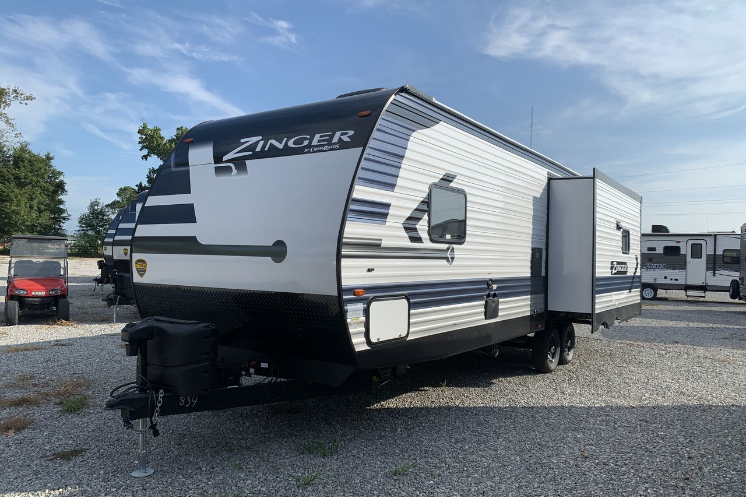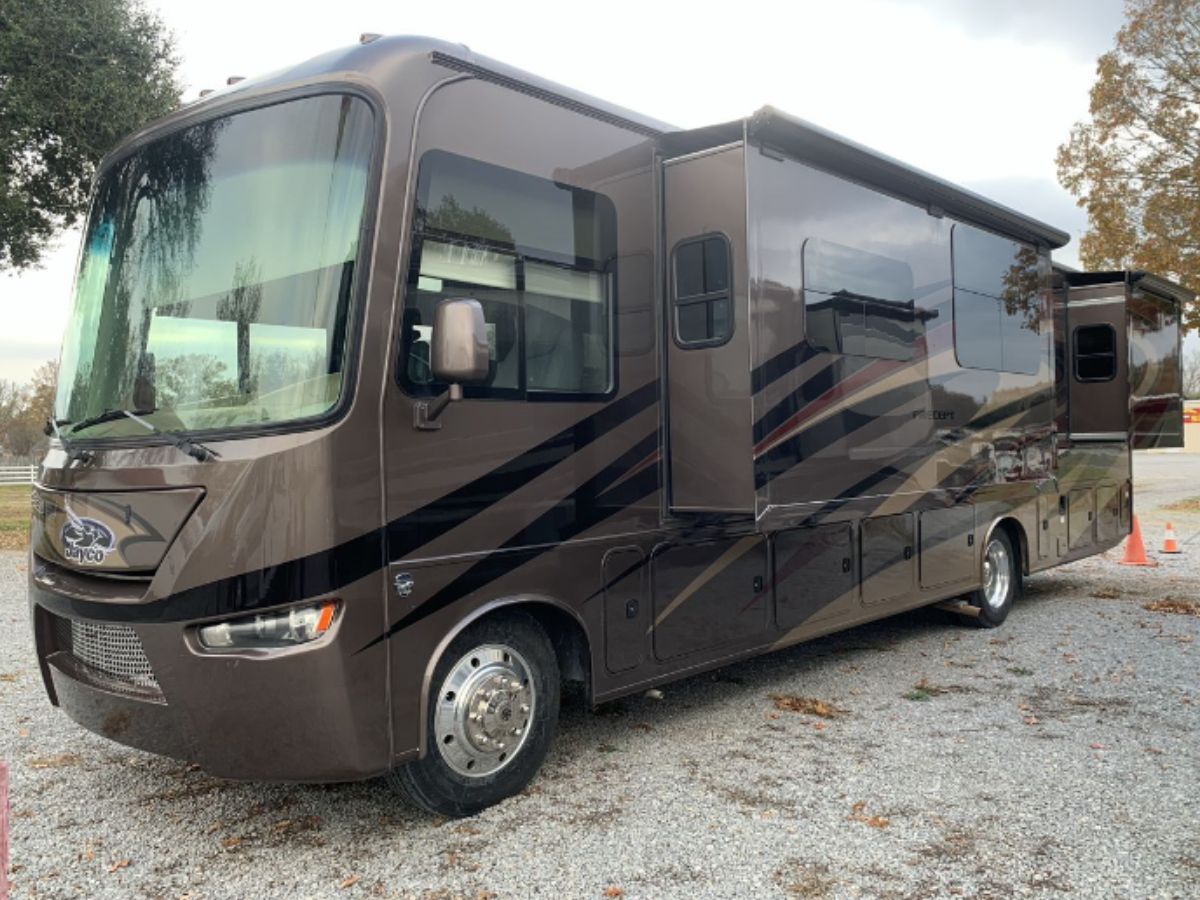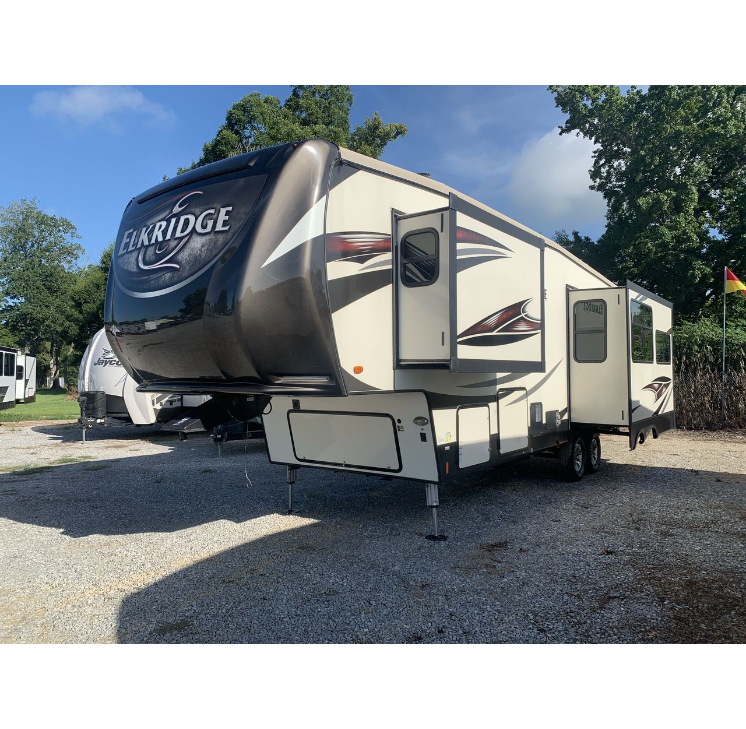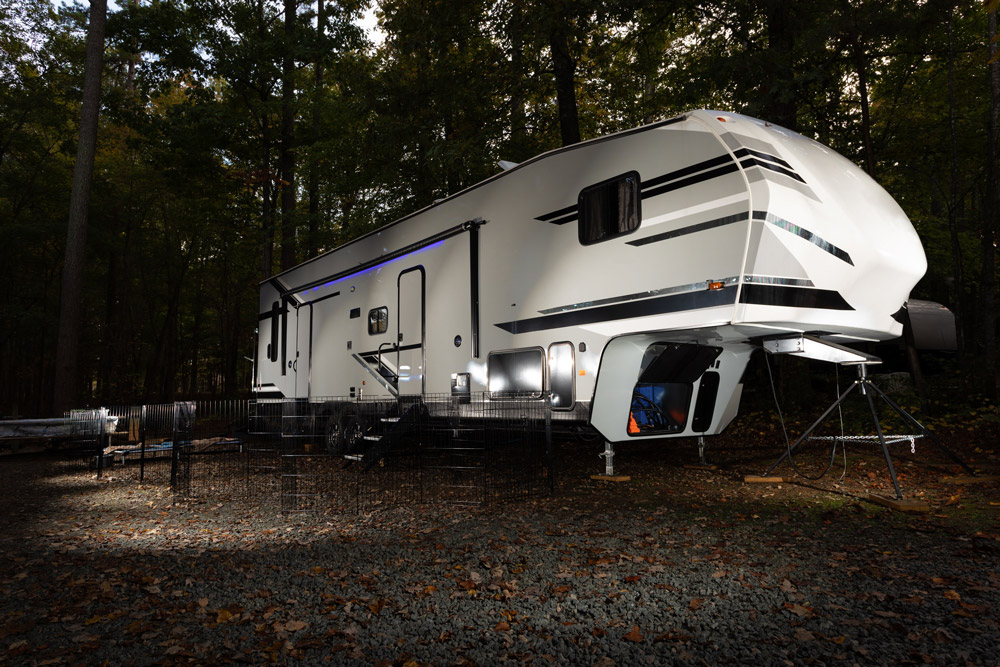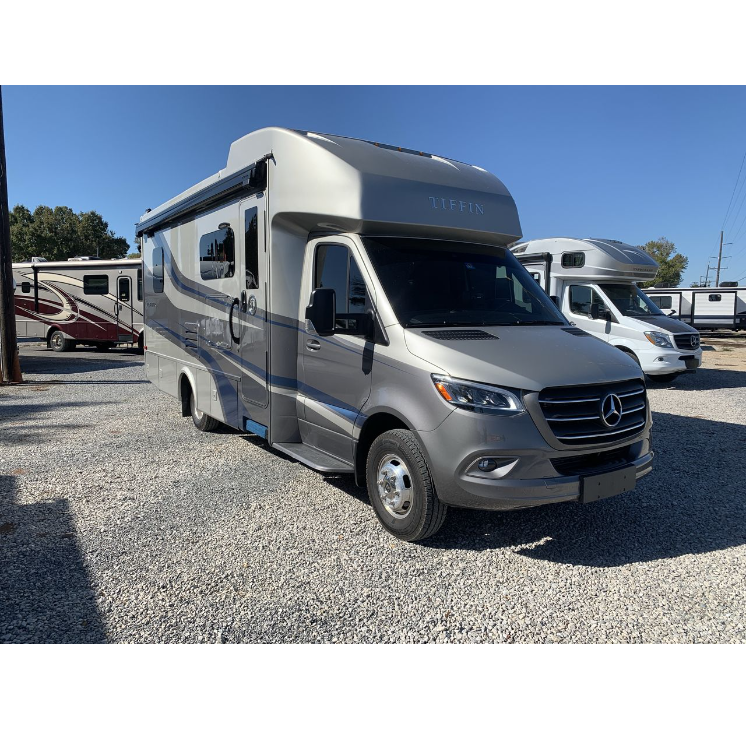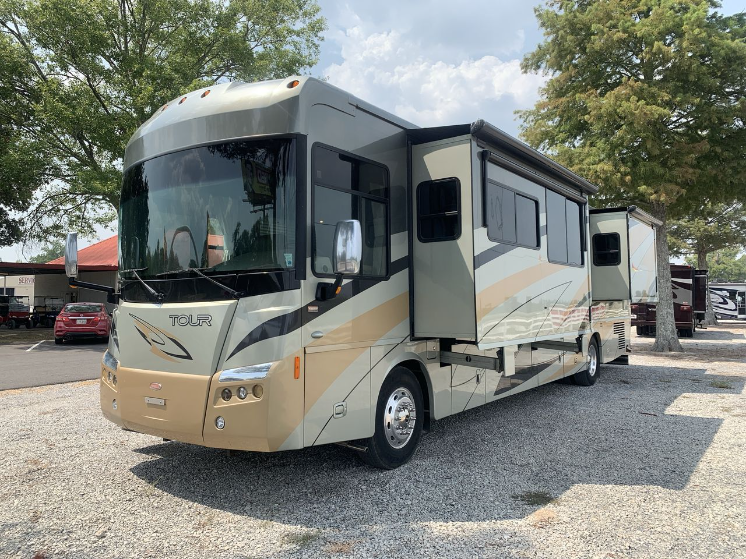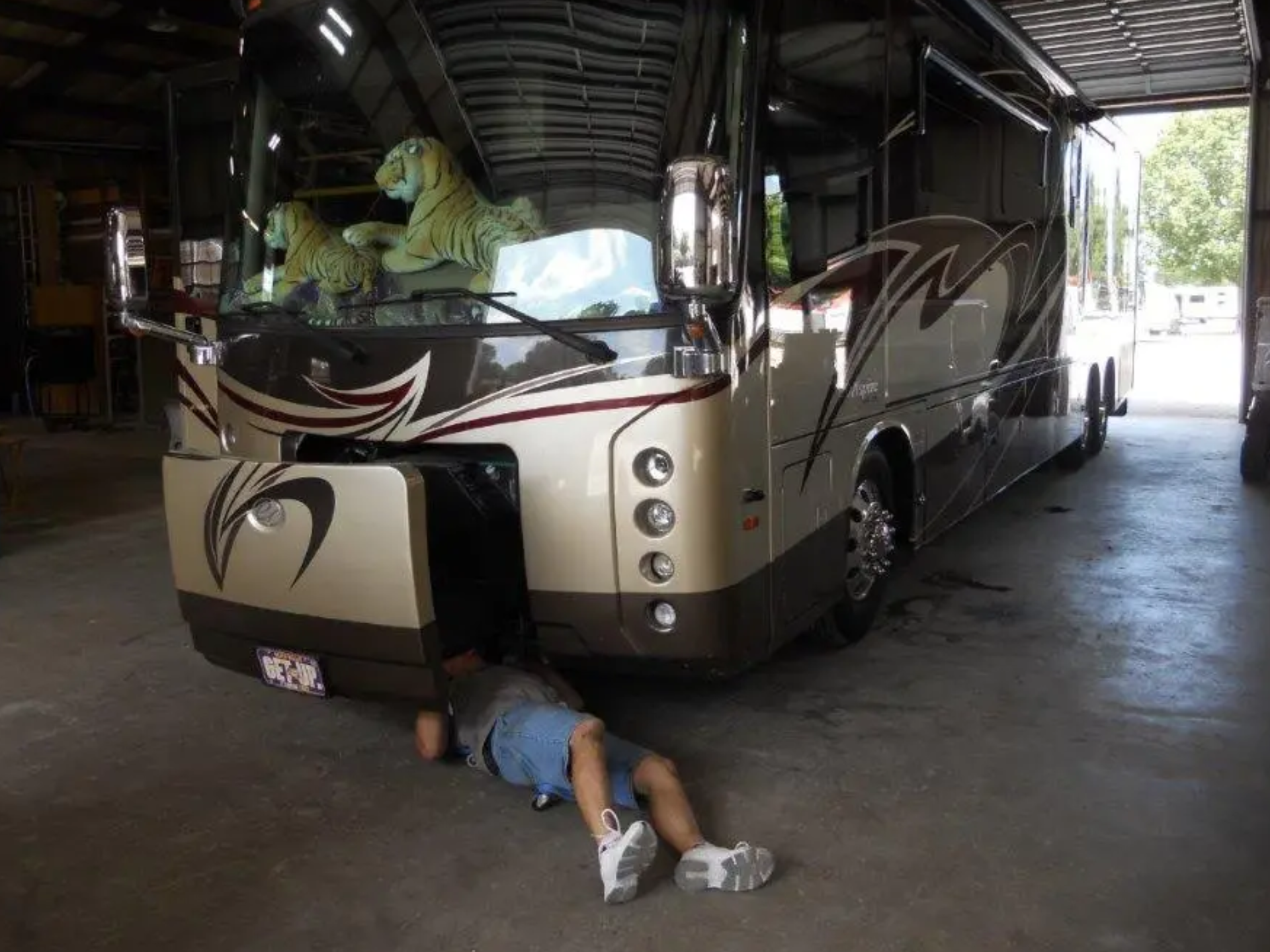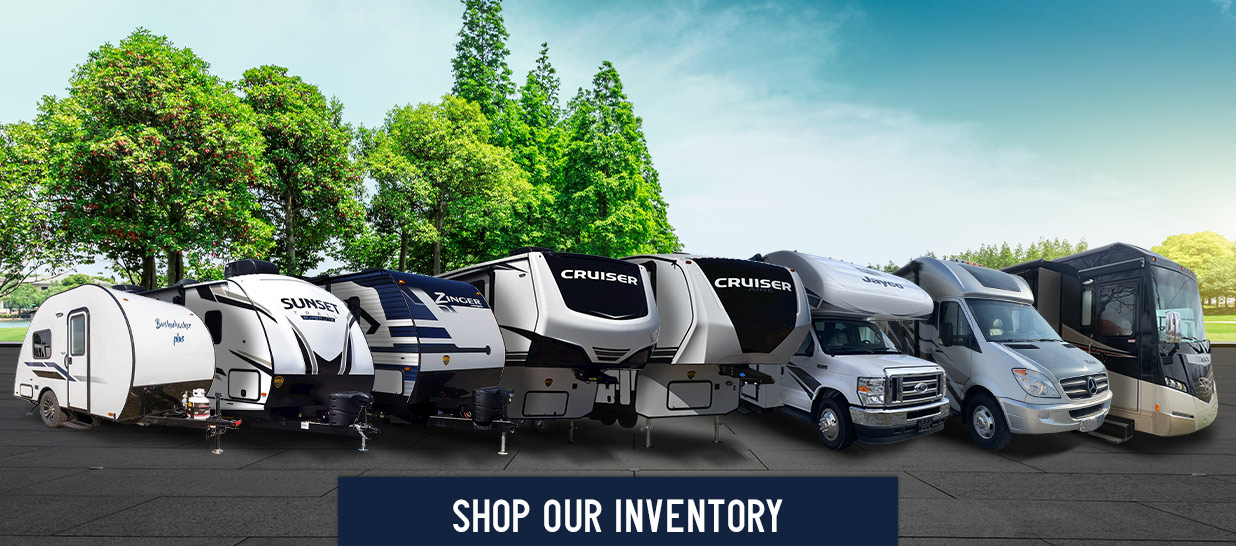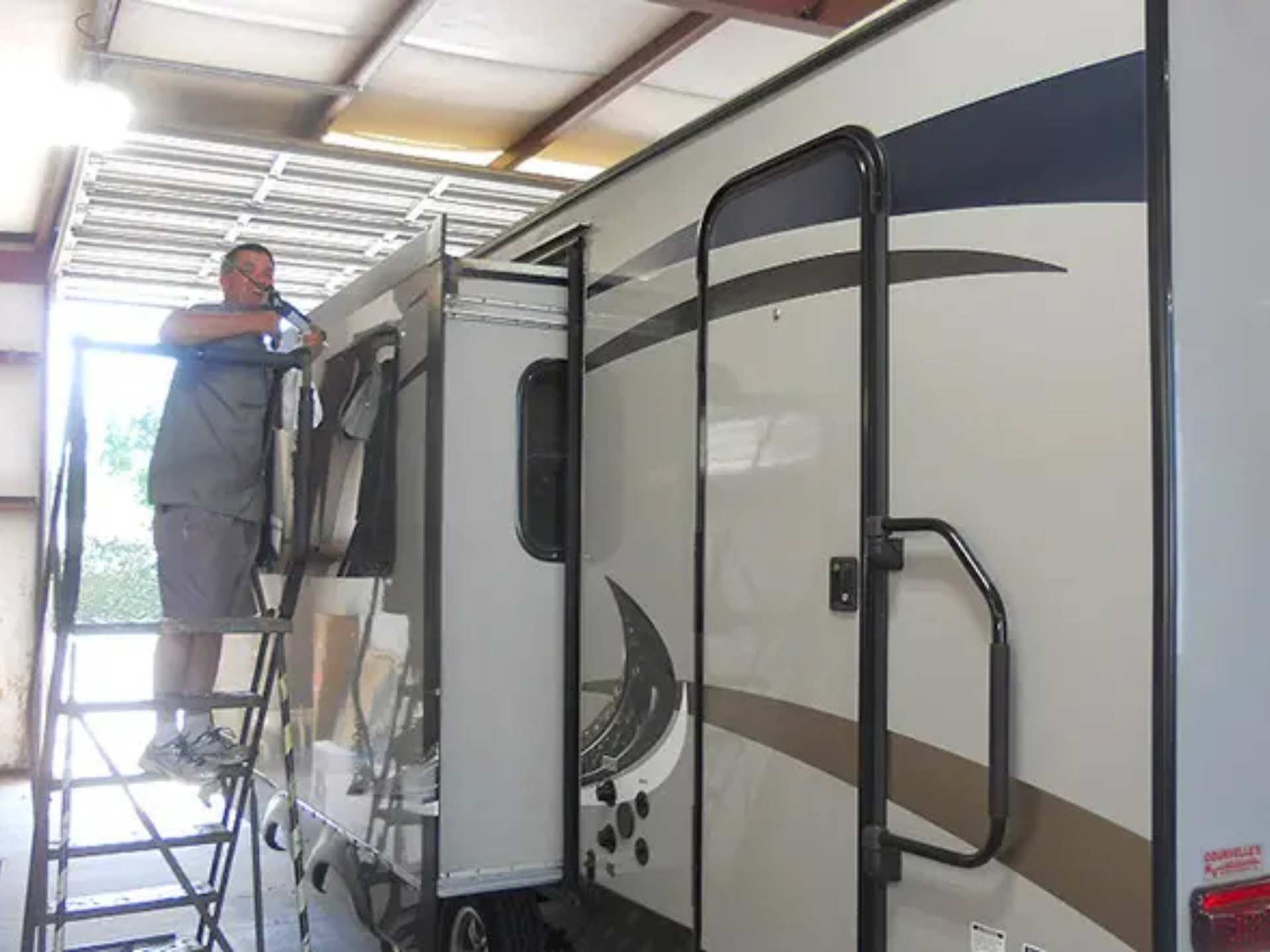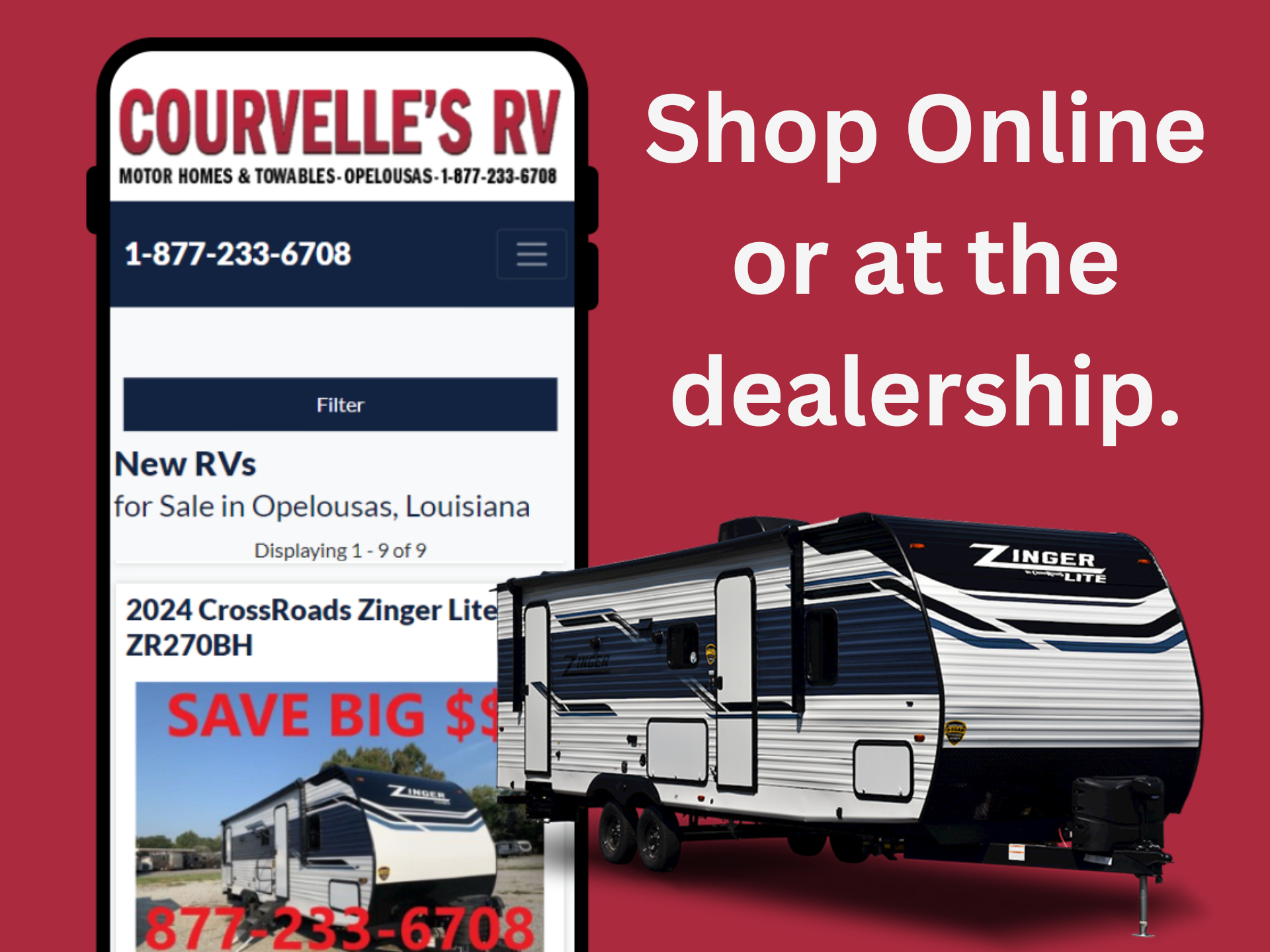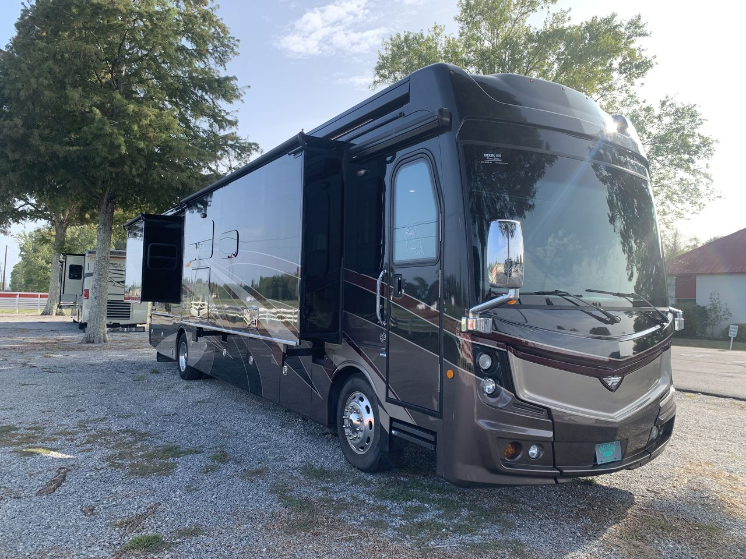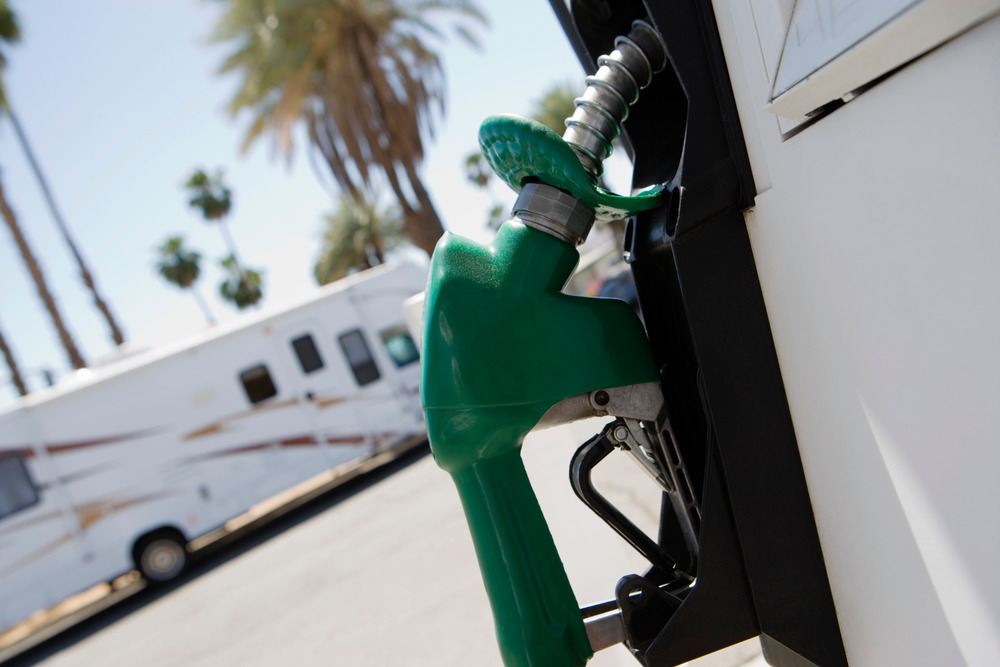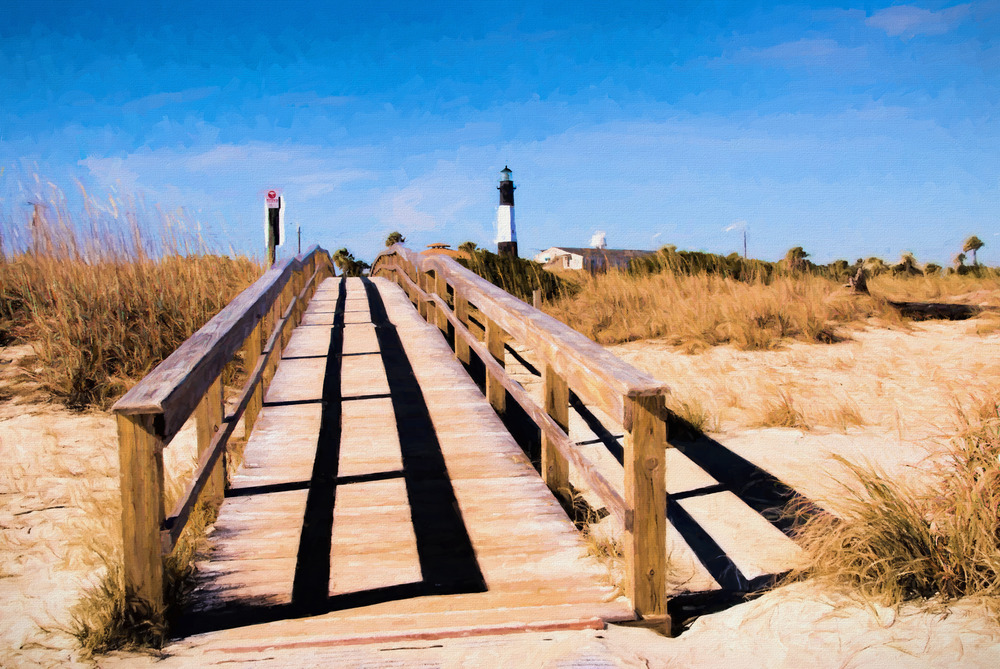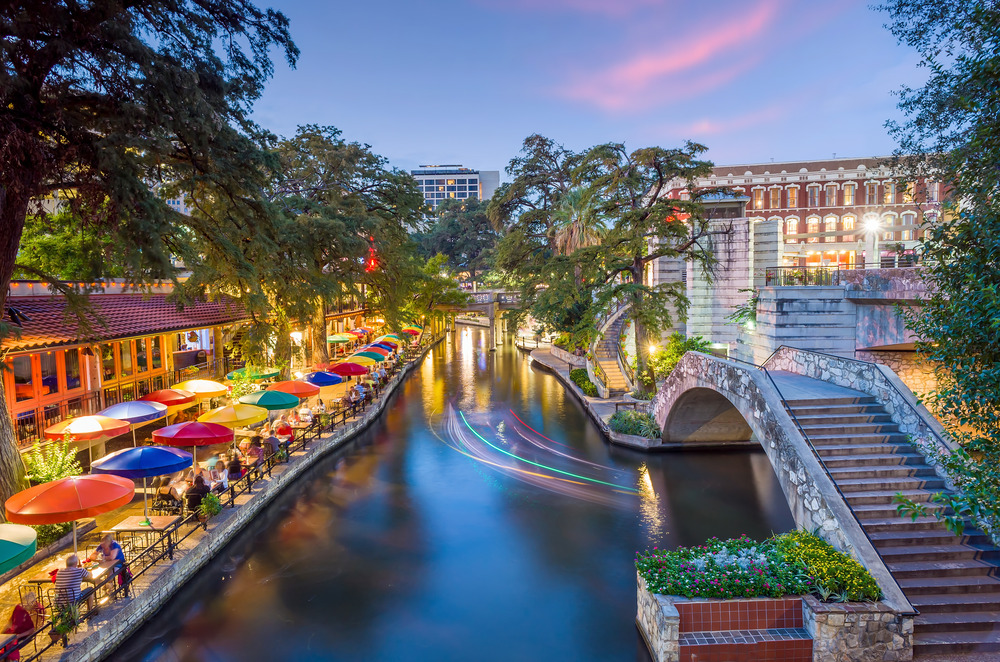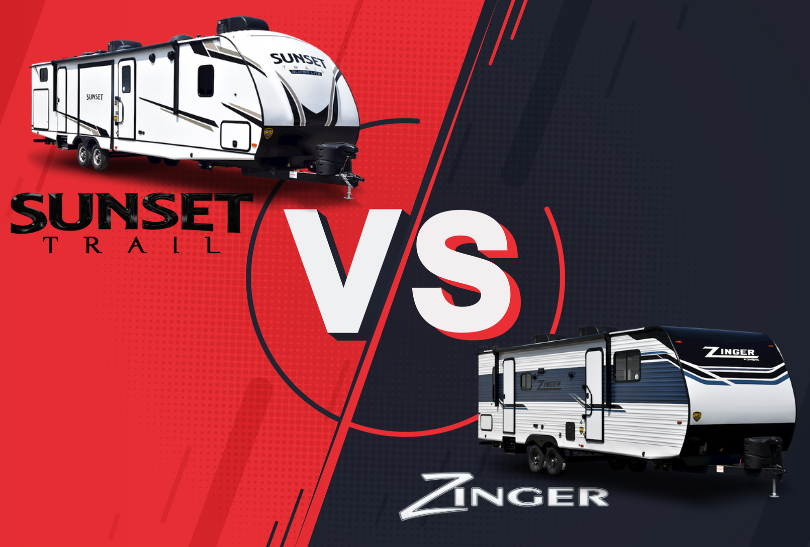
A Comprehensive Comparison: CrossRoads Zinger vs. Sunset Trail RVs
CrossRoads RV has established itself as a beacon of quality and innovation within the RV community. Offering a diverse range of models, including the much-celebrated Sunset Trail RV and CrossRoads Zinger series, CrossRoads caters to a variety of outdoor enthusiasts, from weekend warriors to full-time adventurers.
Whether you’re eyeing the spacious Zinger 270BH or the luxurious Sunset Trail 272BH, CrossRoads offers the perfect escape for every traveler. Choosing between the CrossRoads Zinger and Sunset Trail RV models can shape your travel experience. At Courvelle’s RV, we pride ourselves on matching you with the ideal RV for your adventures. This article provides a head-to-head comparison, focusing on the unique attributes and value each model offers. Discover which trailer aligns with your journey as we break down elements from interior comfort to technological conveniences. Get ready to drive away informed and confident in your choice.
Exploring the Best of CrossRoads: Zinger 270BH vs. Sunset Trail 272BH
Our team at Courvelle’s RV loves CrossRoads trailers for their top quality, innovation, and commitment to customer satisfaction. Among the vast lineup of CrossRoads RVs for sale at our dealership and via our online showroom, two models stand out: the Zinger 270BH and the Sunset Trail 272BH. Both are designed as bunkhouse models, suitable for family camping trips, featuring dual entry and a 10-person sleep capacity. But how do they differentiate themselves from one another? Time to delve into their unique features!
A Close Look at the CrossRoads Zinger 270BH
The CrossRoads Zinger 270BH is an RV model that masters cost-effectiveness without compromising comfort and practicality in its living spaces. This travel trailer is perfect for families looking to explore, offering comfort, style, and all the necessities for the road. Starting from the exterior, the CrossRoads Zinger 270BH has an aerodynamic front end, heated and enclosed underbelly, and molded rain gutters with drip spouts. These features ensure longevity and durability for your RV.
The CrossRoads Zinger 270BH distinguishes itself through its impressive standard features, including:
- Power stabilizer jacks
- Maple cabinet doors and steel ball bearing drawer guides
- Pressed countertops with a stainless-steel sink and high-rise faucet
- AM/FM stereo system with Bluetooth Soundbar
- LED and accent lighting
- Tinted windows with blinds
- Substantial storage space
- 6’6”- 6′ 9″ tall ceiling and an 8′ interior width
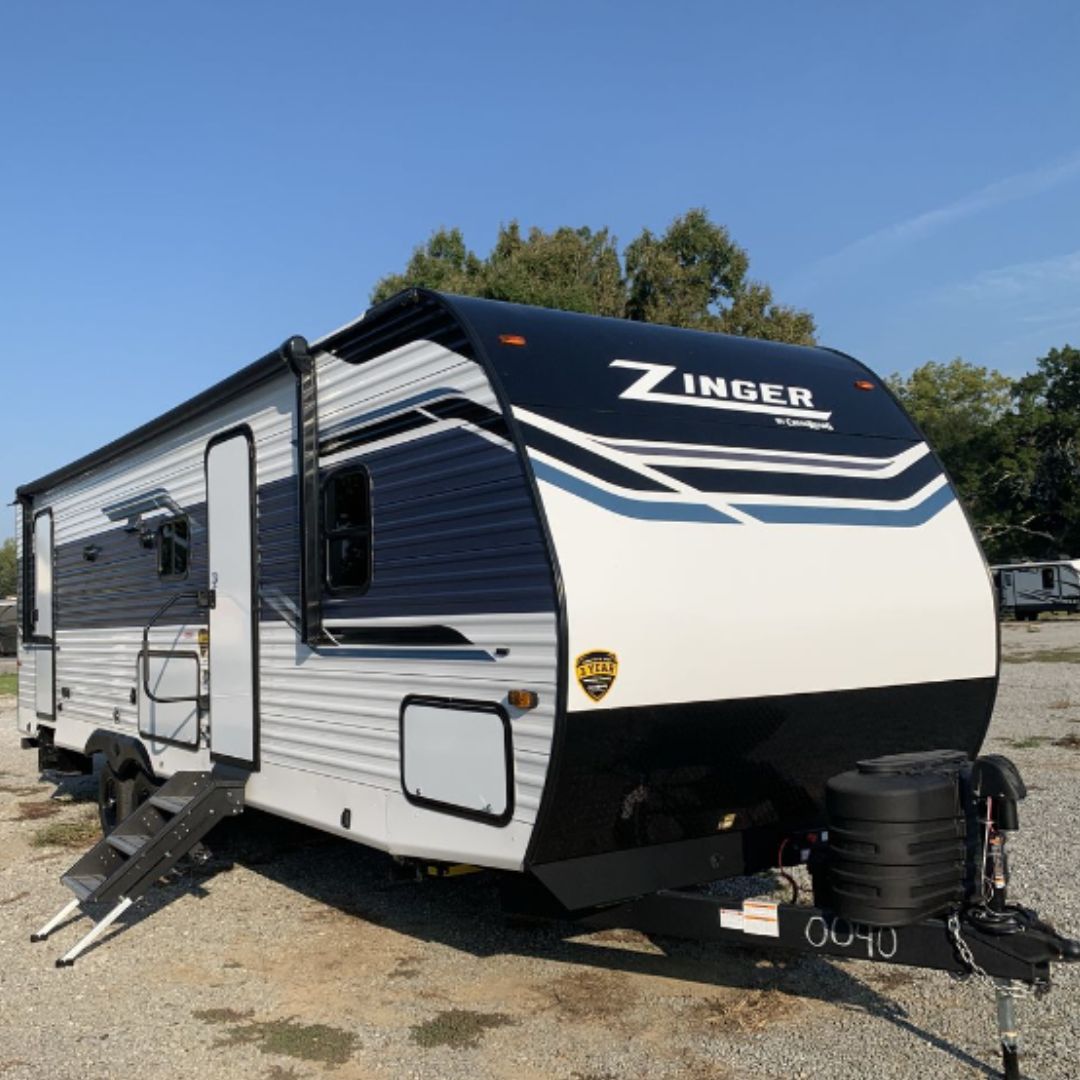
This model excels in its use of modern technology. It includes preparations for Wi-Fi, solar, and rear backup camera, and features a Convenience Center for controlling slides and monitoring tanks. And when the weather turns cold, the forced heat in the totally enclosed underbelly and nitrogen-filled radial tires ensure a cozy and comfortable experience.
The CrossRoads Zinger 270BH features:
- A slide-out
- Queen bed in master
- Bunk beds measuring 50 x 74 inches
- A kitchen pantry
- An outside kitchen
From a short weekend escape to an extended cross-country journey, the CrossRoads Zinger 270BH caters to all your needs.
Spotlight on the Sunset Trail 272BH
The Sunset Trail 272BH combines luxury with practicality, offering a seamless blend of indoor and outdoor living spaces. It stands out for its expansive layout and modern amenities, making it a favorite among families who value high-end features. Highlights include a spacious interior, contemporary design elements, and outdoor entertainment options, embodying the unique selling points of the Sunset Trail RV lineup.
The Sunset Trail 272BH stands out among the CrossRoads lineup. It’s known for:
- Being lightweight, making it easier to tow
- 5-Sided Aluminum construction for durability
- Barreled ceilings that add a spacious, home-like feel
- King-size bed w/ shoe storage and a pet station
- A full sliding door to the master bedroom located at the front of the unit, providing privacy and separation from the living area.
- Double-sized bunks, a 40” jumbo booth dinette, a tri-fold sofa, and a large slide-out are all designed to maximize living space within the trailer.
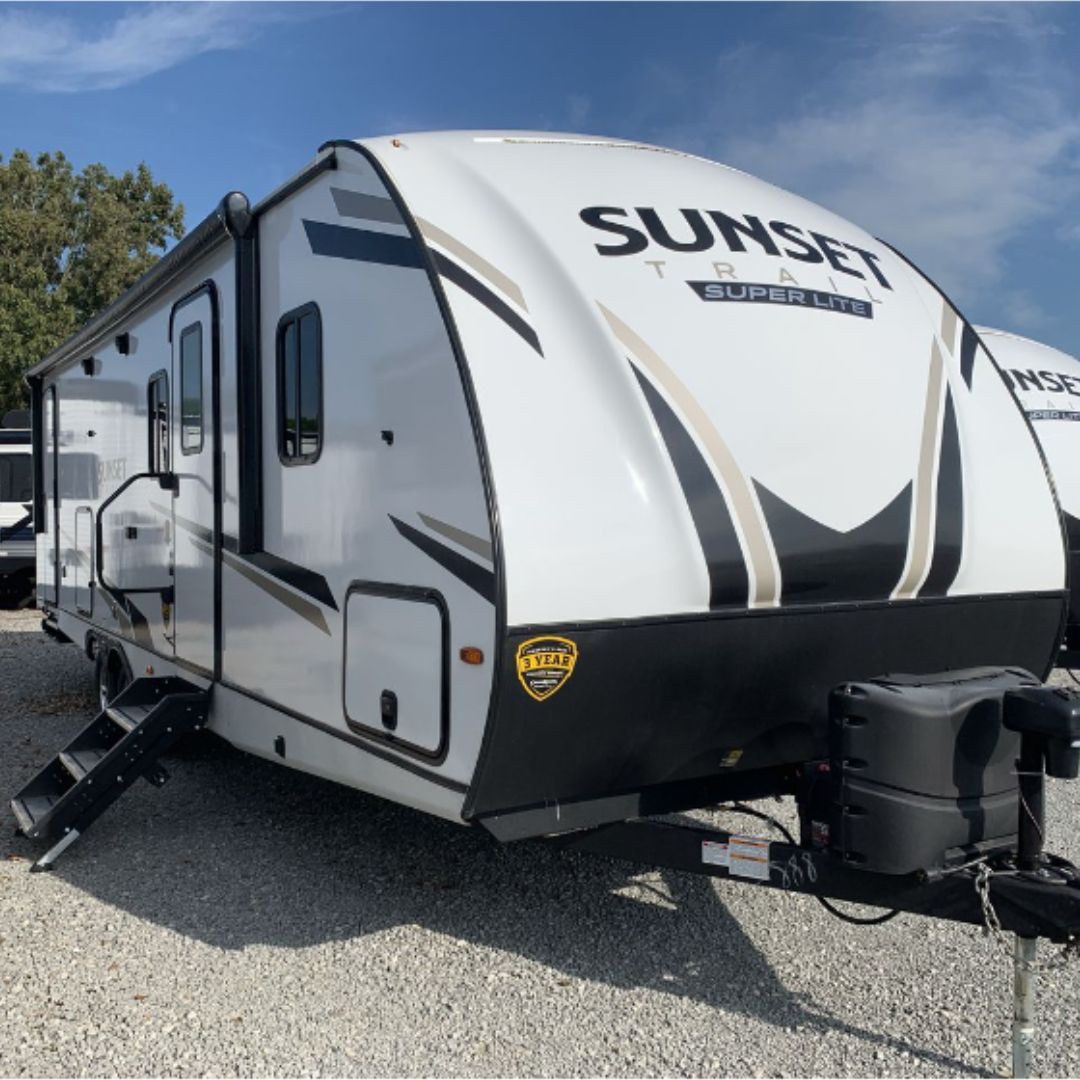
But space isn’t all the Sunset Trail 272BH has to offer. The model also includes a power retractable slide-out and awning, enhancing both the indoor and outdoor living space.
Additionally, the Sunset Trail 272BH features:
- Modern kitchen features include hardwood cabinet doors, solid surface countertops, and a stainless steel farmhouse sink
- Fireplace and theater seating (VBM)
- Outside speakers w/ LED lights and an outdoor kitchen for easy entertaining
The Sunset Trail 272BH notably emphasizes entertainment and comfort. With features like a 40-inch LED TV, options for theater seating in place of a tri-fold sofa, this RV turns any camping trip into a luxurious getaway. Additionally, it is equipped with electric drum rear brakes, nitrogen-filled radial tires and an exterior-mounted spare tire, ensuring safety and convenience on the road.
CrossRoads Zinger 270BH & Sunset Trail 272BH Comparison
When comparing the Zinger 270BH and the Sunset Trail 272BH side by side, several distinctive features become apparent. The Sunset Trail RV models typically incorporate more upscale features and have a lighter build than CrossRoads Zinger models. This can be reflected in the price difference. The CrossRoads Zinger 270BH generally presents a more budget-friendly option, offering great value for those prioritizing affordability.
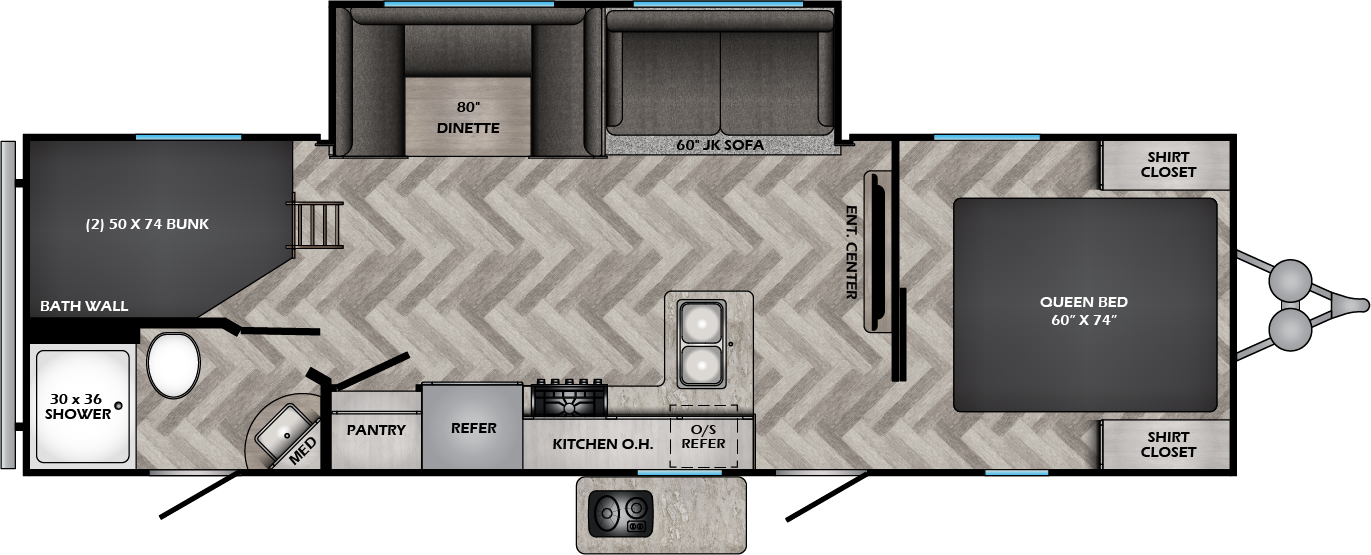
CrossRoads Zinger 270BH
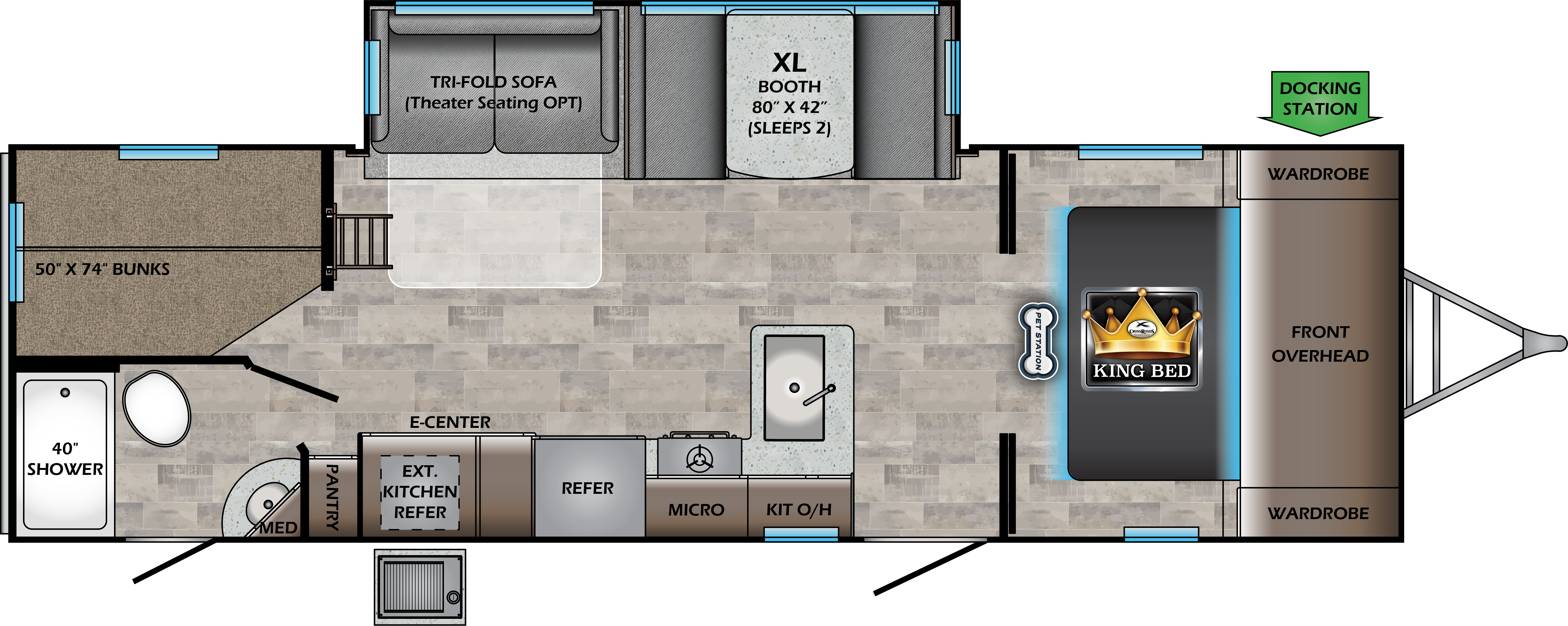
Sunset Trail 272BH
Both models are equipped with modern conveniences, though the Sunset Trail RV typically includes more upscale fittings. The Sunset Trail RVs have aluminum framing and a fiberglass exterior, while the Zinger RVs have a corrugated metal side exterior with wood framing. However, some RV enthusiasts question the durability and lifespan of wood framing compared to aluminum, though some prefer wood for its better insulation properties in extremely cold conditions.
The Sunset Trail RV offers a more open layout conducive to entertaining, while the CrossRoads Zinger provides practical, cozy spaces. Both models comfortably accommodate families, but the layout and bed configurations may sway your decision based on personal needs. The Sunset Trail RVs are noted to have better-designed storage spaces, avoiding wasted space by strategically placing pipes and utilities. However, it’s worth noting that fiberglass exteriors are more expensive to repair compared to aluminum.
Side-by-Side Spec Comparison
| Sunset Trail 272BH | Zinger 270BH | ||
| Dry Weight | 5658 lbs. | Dry Weight | 6132 lbs. |
| Exterior Length | 31′ 5″ | Exterior Length | 31′ 11″ |
| Carrying Capacity | 1942 lbs. | Carrying Capacity | 1598 lbs. |
| Hitch Weight | 722 lbs. | Hitch Weight | 738 lbs. |
| L.P. Gas | 40 lbs. | L.P. Gas | 40 lbs. |
| Exterior Width | 8′ 0″ | Exterior Width | 8′ 0″ |
| Ext. Height with A/C | 11′ 1″ | Ext. Height with A/C | 11′ 2″ |
| Fresh Water | 45 gal | Fresh Water | 51 gal |
| Black Water | 30 gal | Black Water | 39 gal |
| Gray/Galley Water | 30 gal | Gray/Galley Water | 39 gal |
Key Takeaways
- The Sunset Trail 272BH stands out for its lightweight construction, space-maximizing features, including double-sized bunks and a king-size bed, and fiberglass sidewalls. It also offers luxury amenities like a 40-inch LED TV and theater seating options.
- The CrossRoads Zinger 270BH focuses on cost-efficiency, practicality, and durability. Its features include a heated and enclosed underbelly, power stabilizer jacks, and preparations for modern tech, including Wi-Fi and solar, making it ideal for comfortable travel regardless of weather.
- Choosing between Sunset Trail and CrossRoads Zinger models depends on personal preferences and needs, such as budget, type and frequency of travel, family size, and desired features, and it’s essential to try out these features before making a purchase.
Shop CrossRoads RVs at Courvelle’s
Choosing the right RV for your needs is a significant decision, one that can shape your travel experiences for years to come. The CrossRoads Sunset Trail 272BH and Zinger 270BH both offer unique advantages and features, catering to different needs and preferences. Whether you value luxury and modern amenities or cost-effectiveness and practicality, there’s a CrossRoads model that’s right for you.
At Courvelle’s RV, we aim to make your RV purchasing experience as smooth and enjoyable as possible. From exploring various models or trading in your RV to choosing the right one for your needs, we’re here to guide you every step of the way. So why wait any longer? Visit us today and see why we’re the trusted choice for RV enthusiasts everywhere. Remember, at Courvelle’s, the price you see is the price you get – no surprises, just the open road ahead.
Frequently Asked Questions
What are the key differences between the Sunset Trail 272BH and the Zinger 270BH?
The Sunset Trail 272BH has more luxurious features and a lighter build than the Zinger 270BH, with aluminum framing and a fiberglass exterior, while the Zinger has a corrugated metal side exterior with wood framing. Choose based on your preferences and needs, the Sunset Trail offers more luxury and a lighter build.
How do I choose the right RV model for my needs?
When choosing the right RV model, consider your budget, the type of RVing you plan to do, the timing and location of your trips, and the amount of space you need. Create a list of must-have features for both the interior and exterior to narrow down your options.
Who manufactures Sunset Trail RV?
Sunset Trail RVs are manufactured by CrossRoads RV. You can enjoy a lightweight travel trailer with numerous features for any type of camping!
Where can I view these RV models in person?
You can view these RV models at Courvelle’s RV located at 3629 I-49 S. Service Rd. in Opelousas, LA.
What are the operating hours for Courvelle's RV?
Courvelle’s RV is open for sales Monday through Friday from 8:00am to 6:00pm, and Saturday from 8:30am to 3:00pm. For parts and service, the hours are Monday through Friday from 8:00am to 5:00pm.
Why Choose CrossRoads RVs?
CrossRoads RVs, including the Zinger and Sunset Trail models, are designed with your needs in mind. Durable, stylish, and packed with features, these RVs are built to make every journey unforgettable. Plus, with CrossRoads’ commitment to quality, you’re investing in years of reliable adventures.



